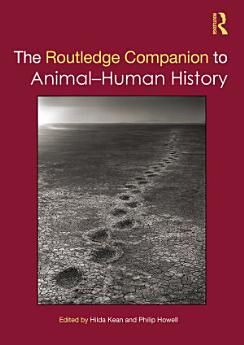The Routledge Companion to Animal-Human History
About this ebook
Divided into three parts, the Companion takes both a theoretical and practical approach to a field that is emerging as a prominent area of study. Animals and the Practice of History considers established practices of history, such as political history, public history and cultural memory, and how animal-human history can contribute to them. Problems and Paradigms identifies key historiographical issues to the field with contributors considering the challenges posed by topics such as agency, literature, art and emotional attachment. The final section, Themes and Provocations, looks at larger themes within the history of animal-human relationships in more depth, with contributions covering topics that include breeding, war, hunting and eating.
As it is increasingly recognised that nonhuman actors have contributed to the making of history, The Routledge Companion to Animal-Human History provides a timely and important contribution to the scholarship on animal-human history and surrounding debates.
About the author
Hilda Kean was Dean of Ruskin College, Oxford. Her many books include The Great Cat and Dog Massacre: The Real Story of the World War 11’s Unknown Tragedy (2017); Animal Rights: Political and Social Change in Britain since 1800 (1998); The Public History Reader (with Paul Martin, 2013).
Philip Howell is Reader in Historical Geography at the University of Cambridge. He is the author of Geographies of Regulation: Policing Prostitution in Nineteenth- Century Britain and the Empire (2009) and At Home and Astray: The Domestic Dog in Victorian Britain (2015).




